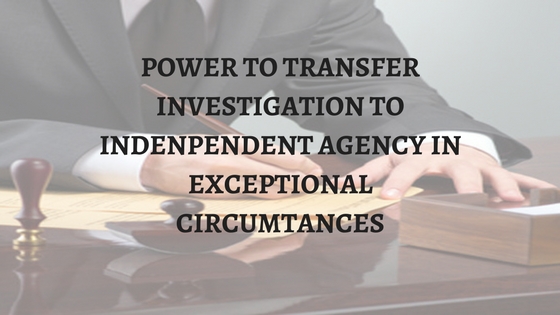Aapka Consultant Judgment Series- In this series, we are providing case analysis of Landmark Judgments of Hon’ble Supreme Court of India.
Babubhai v. State of Gujarat & Ors
[2010] 12 SCC 254, [2011] 1 SCC (Cri) 336
JUDGES: P. Sathasivam and Dr. B.S. Chauhan
Date of Decision: 26-08-2010
FACTS:-
The facts in brief, that two different FIRs have been lodged by two different persons for the same altercation took place between members of the two communities. The accused in the both cases filed applications praying for investigation by an independent agency like the CBI and for quashing both the FIRs. On completion of investigation, the charge sheet was filed and the case was committed to Sessions Court. High Court quashed the second FIR and directs to investigate both the cases jointly by the state CID crime branch. Hence, appeal filed by the appellant against this order of High Court.
ISSUES:-
- Whether High court was justified quashing the FIR without appreciating that there are no common factors in both the FIR’s?
- Whether High court was justified in handing over the investigation to some independent agency like State CID crime branch?
JUDGMENT:-
The contentions relied upon by the appellant in support of the ground of appeal were that the High Court made error by treating both FIR’s arisen out of the same transaction despite they are no common factors in both the FIRs and treated both FIRs had arisen out of the same transaction. FIR under S.154 Cr.P.C. is a very important document and sets the machinery of criminal law in motion. Thus, it is quite possible that more than one piece of information be given to the investigating officer in respect of the same incident involving separate incidents. In such a case the court has to examine the facts and circumstances giving rise to both the FIRs and the test of sameness is to be applied to find out whether both the FIRs relate to the same incident in respect of the same occurrence or are in regard to the incidents which are two or more parts of the same transaction. If the answer is affirmative, the second FIR is liable to be quashed. However, in case, the contrary is proved, where the version in the second FIR is different and they are in respect of the two different incidents/crimes, the second FIR is permissible.
On comparing both the FIR’s and panchnama’s situation becomes clear crystal that that both the incidents had occurred at the same place and in short span of time. This lead to the conclusion that the incidents are the two parts of the same transaction. On the basis of this observation, the Court affirmed the findings of the High Court for quashing second FIR.
Further, the Court had taken notice of the records available with detail reasoning for coming to the conclusion by the High Court, that the investigation has been totally one-sided, biased and mala fide. Not only the fair trial but fair investigation is also the part of constitutional rights guaranteed under Articles 20 and 21 of the Constitution of India. Investigating agency cannot be permitted to conduct an investigation in tainted and biased manner. In view of the above, High Court reached the correct conclusion and second FIR was liable to be quashed. Thus, the appeals are disposed of with the modification that the charge sheets and subsequent orders will be quashed.
HELD:-
The Court held, firstly, that both the FIRs are the result and parts of the same of the same incident and could be clubbed together and secondly, courts are empowered to transfer the investigation to an independent agency in order to prevent the miscarriage of criminal justice.
To Get Legal Opinion from Advocates/ Legal Experts, Please click here
To Get Legal Opinion from Retired Hon’ble Judges, Please click here












